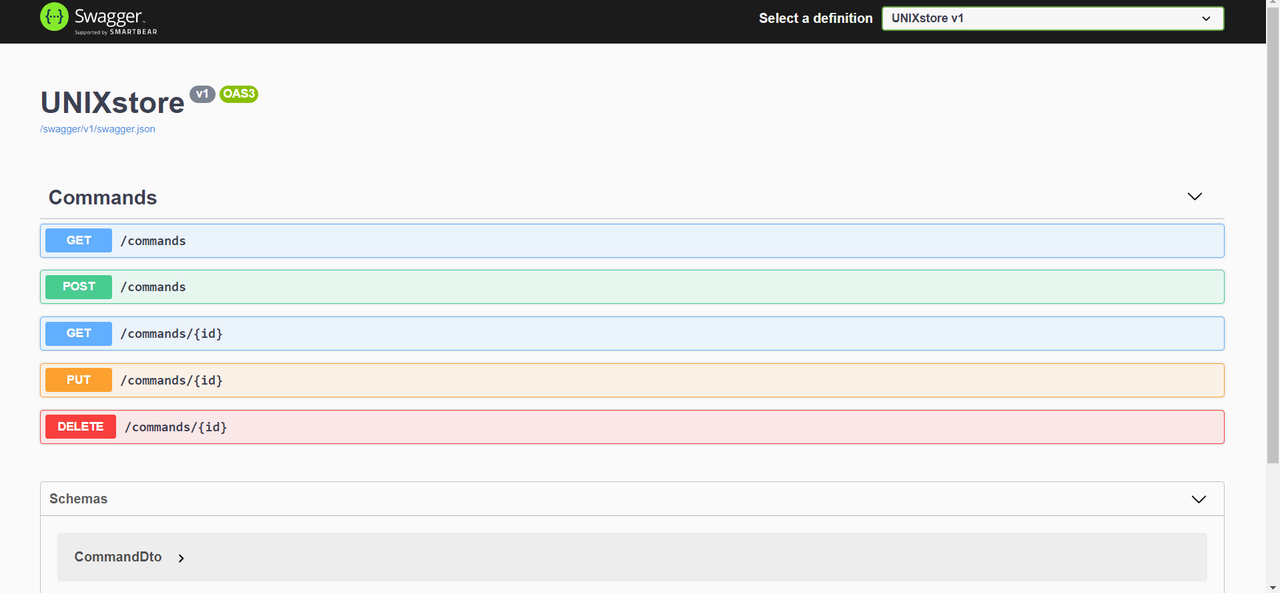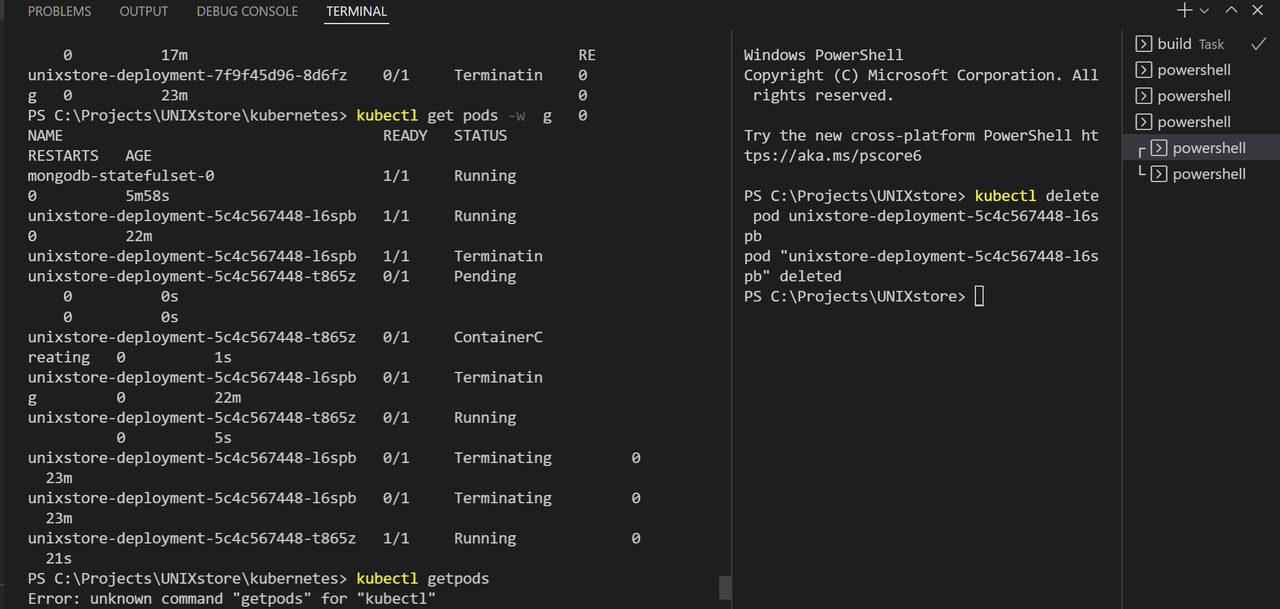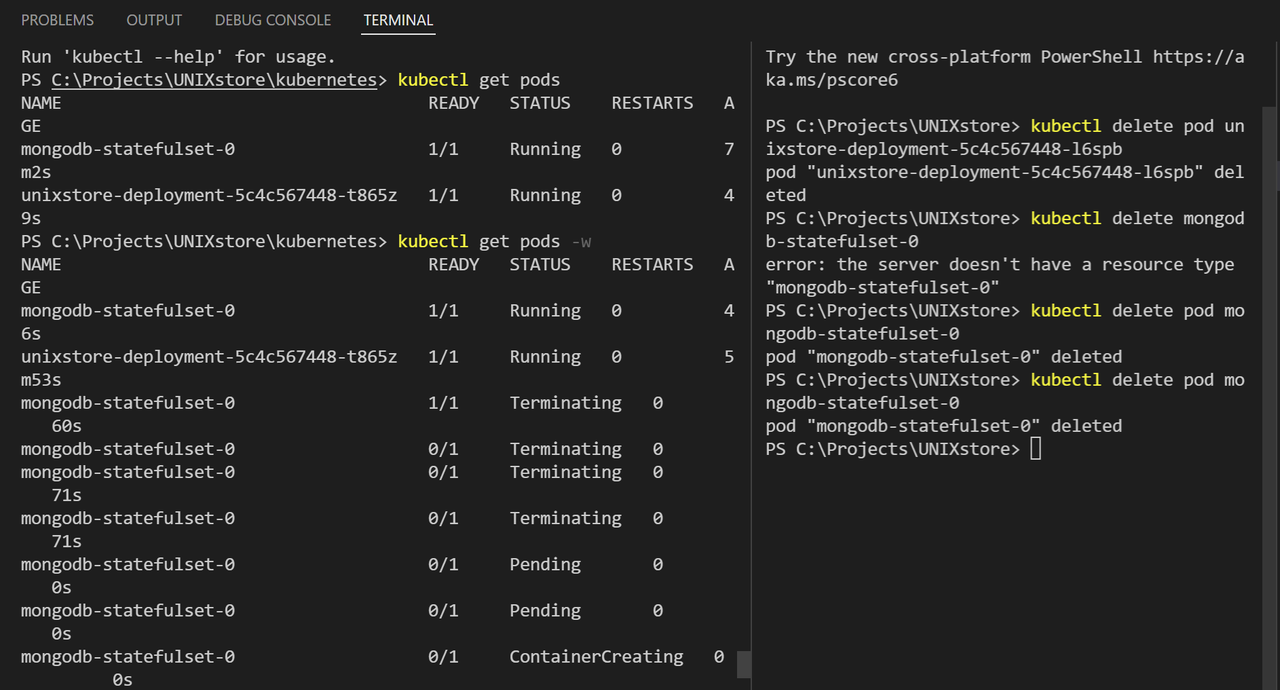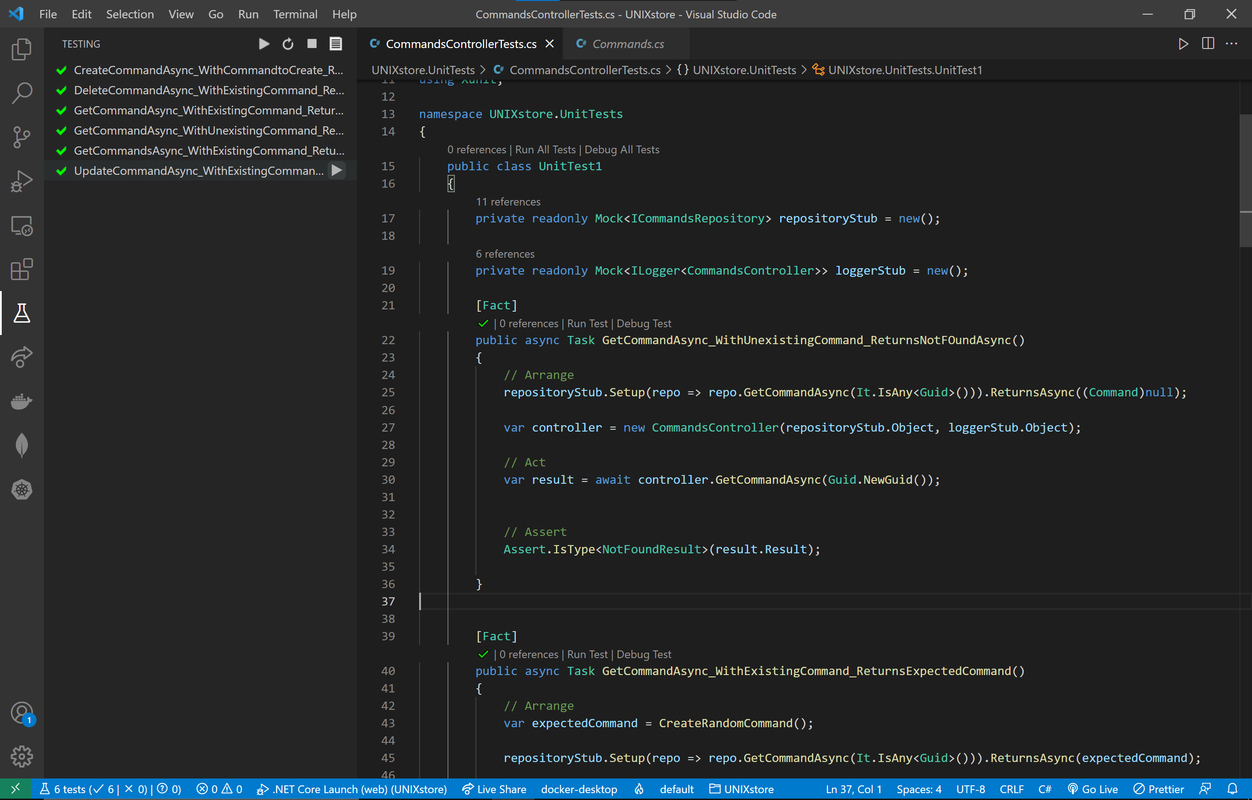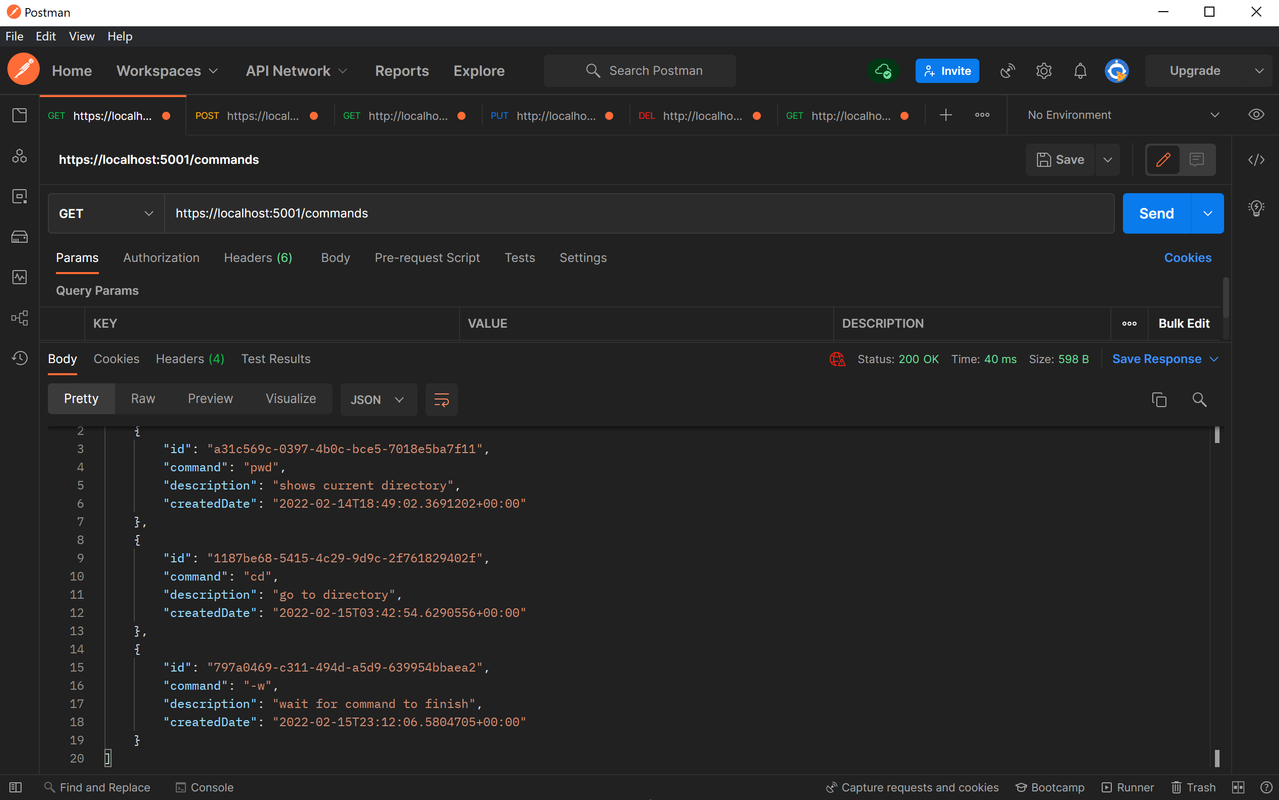A .NET REST API using C# built to store UNIX commands
technologies used: C#, Docker, Kubernetes, Postman, xunit (unit tests), MongoDB
Features and concepts:
Dependency injection:
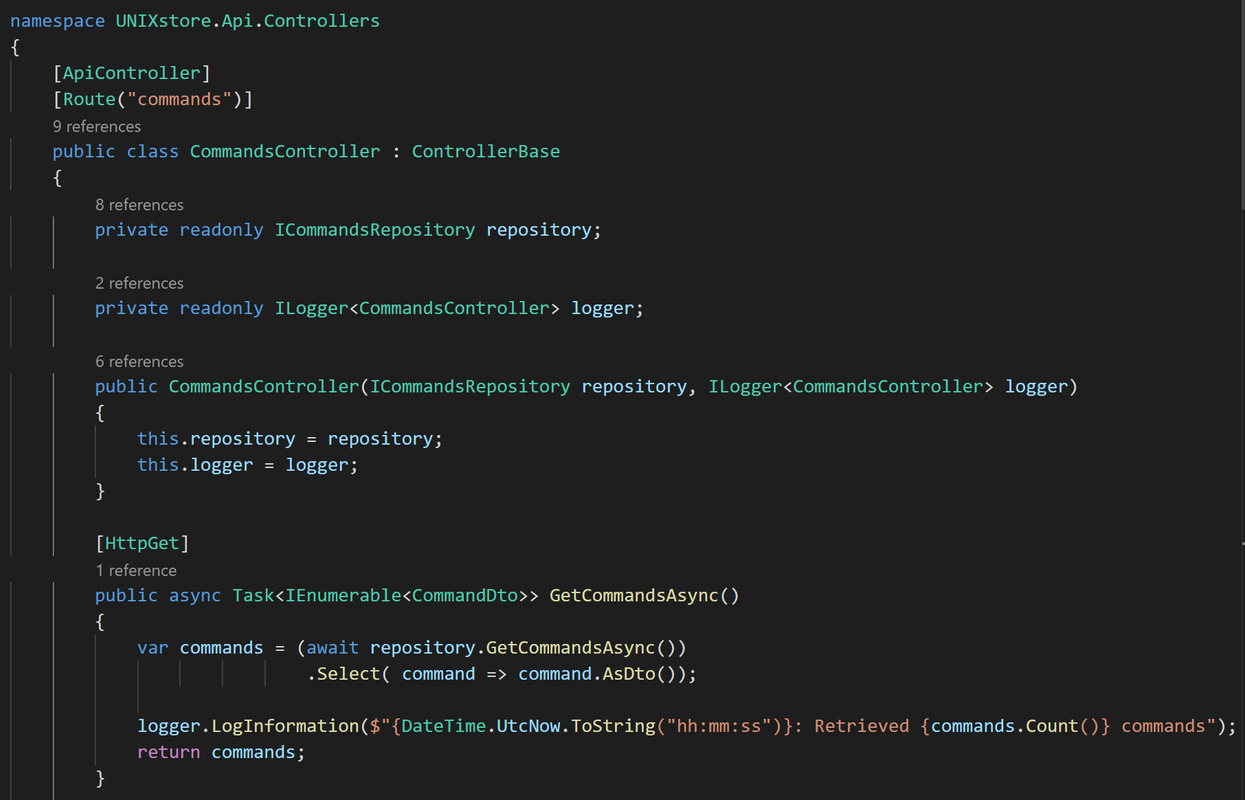
Decoupling implementations from each other makes testing, upgrades easier.
DTOs (Data transferable objects):
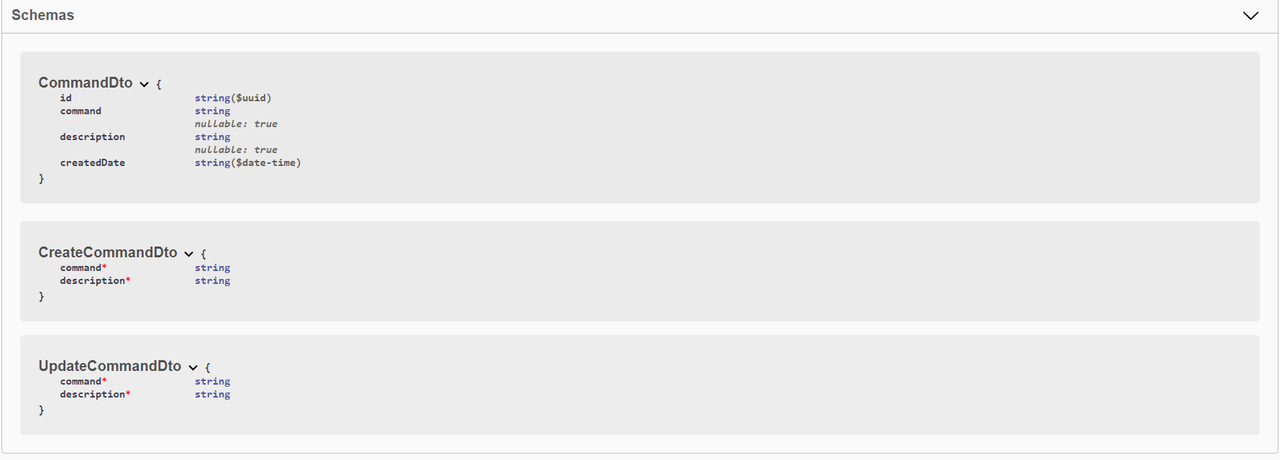
What makes this API RESTful:

Persistence of entities using MongoDB: MongoDB hosted on docker was used to store the unix commands.
Deployment to Docker: public docker pull command: docker pull deepan19/unixstore link to docker hub page: https://hub.docker.com/r/deepan19/unixstore
Why docker? advantages of docker: Deployment is challenging as the client's PC may not have the OS, environment, dependencies, .NET runtime, mongodb driver that are required for the api to run in production. Also we have a MongoDB database and its own dependencies that needs to run in production. A docker container contains everything our RESTapi needs to run in another PC Our RESTapi -> docker file -> build a docker image using docker engine -> push a docker container
Kubernetes: the kubernetes control plane schedules, load balances, selfheals, allocates pods (collection of containers) to nodes based on cpu, scales up containers: turns desired state into actual state
self heal capability of API container:
self-heal capability of MongoDB service:
- unit testing using xunit and postman
unit testing is to make sure individual methods work in isolation without external dependencies. Can prevent expensive bug fixes later on as we scale.
testing all requests using postman:
TDD(test driven development) was used for testing: write a test before writing enough production code to make the failting test pass. write a failing test->write code to make it pass -> Refactor
